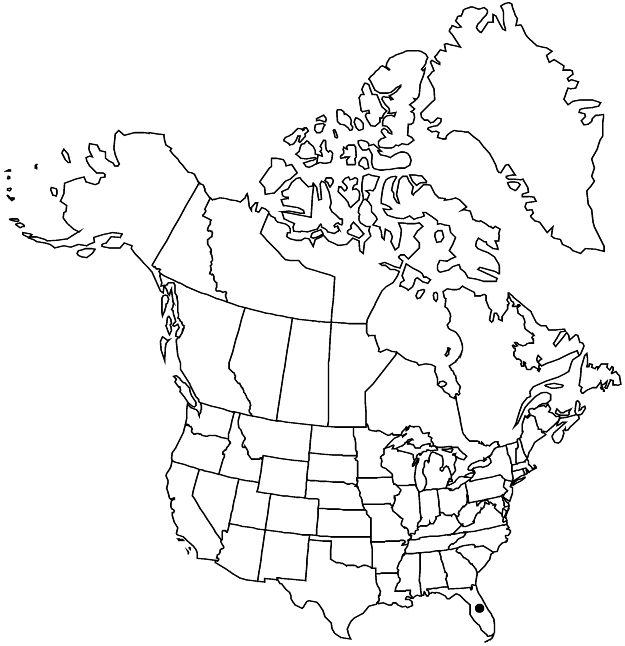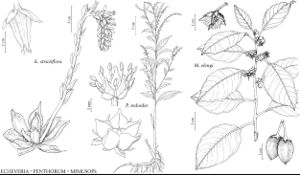Mimusops elengi
Sp. Pl. 1: 349. 1753,.
Plants to 20 m. Stems glabrate to appressed-puberulent, hairs tawny to reddish brown. Leaves spirally arranged; petiole 10–30 mm, glabrescent; blade elliptic to ovate [obovate], 40–145 × 20–70 mm, coriaceous, margins broadly undulate. Inflorescences 2–3(–4)-flowered fascicles or solitary flowers. Pedicels 8–21 mm, densely hairy. Flowers fragrant, 12–14 mm diam. at anthesis; sepals narrowly ovate, 4–6 × 2–3 mm, abaxially densely appressed-hairy, hairs tawny to reddish brown; corolla lobes: median segment elliptic to lanceolate, 6–9 mm, erose; lateral segments lanceolate, 6–8.5 mm, erose; stamens 4.5–6 mm; staminodes 4–6 mm. Berries 20–30 mm. Seeds 15–20 mm. 2n = 24.
Phenology: Flowering Apr–Sep.
Habitat: Disturbed sites [wet evergreen tropical forests]
Elevation: 0-30[-800] m
Distribution

Introduced; Fla., Asia.
Discussion
Mimusops elengi is widely cultivated as an ornamental shade tree with fragrant flowers, astringent, yet edible, fruits, and hard, durable wood. In Malaysia, India, and Sri Lanka, some parts of the tree are used as medicinals (W. Dymock et al. 1890–1893, vol. 2; H. Trimen et al. 1893–1931, vol. 3; E. J. H. Corner 1952).
Selected References
None.
